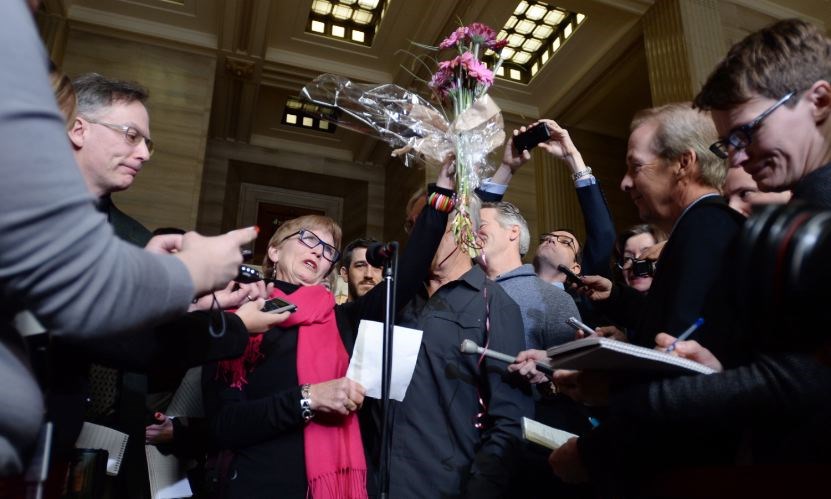Friday morning's Supreme Court of Canada decision that doctor-assisted suicide was unconstitutional has kickstarted local and provincial discussions in health and palliative care.
"The prohibition deprives some individuals of life, as it has the effect of forcing some individuals to take their own lives prematurely, for fear that they would be incapable of doing so when they reached the point where suffering was intolerable," said the reasons for judgment from the nine justices. "The prohibition on physician assisted dying infringes the right to life, liberty and security of the person in a manner that is not in accordance with the principles of fundamental justice."
The court ruled that the federal government has a year to review its right-to-die legislation.
It's that fear of pain that triggers conversations front line workers often have with guests entering hospice care.
And while it's a topic discussed within the field, doctor-assisted dying is not something they advocate for or against, said Prince George Hospice Society executive director Donna Flood.
"We very much support the dignity and comfort of dying and how our philosophy allows people to die naturally, supported in a comforting, pain-free way," said Flood.
"(Assisted suicide) becomes a moot point even though as people first enter into that journey it's one of the first things they think about. As they move forward in the care of comfort, it's no longer something that they even contend with."
The issue is one that the hospice will continue to watch closely, as will the provincial government.
"The issue around end-of-life care is challenging and profound, as it involves complex medical, legal and ethical questions," said a statement from B.C. assistant deputy attorney general Kurt Sandstrom. "We will take time to review the ruling and consider its implications for British Columbia."
The ramifications of Friday's decision will also be discussed in classrooms training new doctors.
Given its illegality, the concept of assisted dying was never part of the Northern Medical Program's curriculum, "but that's not to say it might not come up in an ethics discussion," said NMP's regional associate dean Dr. Paul Winwood.
"Right now particularly in the clinical context of patient care, when our students are involved with patients who are dying, particularly in a palliative situation, discussions about withdrawal of treatment and refusal of treatment may come up," Winwood said. "And I'm sure that with this decision, we will start to hear discussion about assisted death."
While the fallout of the Supreme Court's decision remains to be seen, Winwood said that if doctor-assisted suicide becomes an accepted practice for, as the court ruled, grievous and irremediable medical conditions that cause enduring and intolerable suffering, the Northern Medical Program's curriculum could be adjusted to include it.
Until then, it will be business as usual for joint University of Northern B.C. and University of B.C. syllabus.
"We always encourage our students to think broadly about ethical issues and the more we can get them to think and be aware of these issues, the better," Winwood said.
Flood also advocates for having conversations about end-of-life decisions early, "especially when they're well and before they become sick."
"Regardless, have the conversation so your family knows what you want," she said.
"And if they need any help in that, they can give us a call at hospice and we will help them start that conversation."



